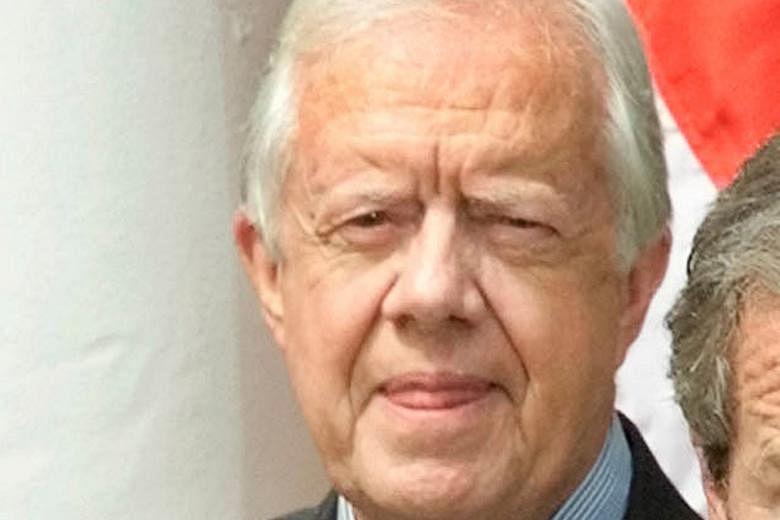WASHINGTON • The Korean peninsula is heating up as the US and North Korea continue to unleash war rhetoric against each other, but it is by no means a new flashpoint.
The tensions over Pyongyang's nuclear ambitions had threatened to boil over in 1994 too, when the administration of then President Bill Clinton seriously considered a unilateral strike on North Korea's nuclear plant at Yongbyon to prevent the reclusive nation from recovering the raw material to make nuclear bombs.
According to former Pentagon officials, the US military drew up plans to strike the reactor. But the military was also convinced that such an attack would result in all-out war, forecasting up to one million deaths.
The US also considered the option of seeking tougher United Nations sanctions on North Korea, but this also threatened to spiral out of control.
After months of rising tension, on June 15, 1994, Mr Clinton was briefed by officials on three options to substantially reinforce the 37,000 troops stationed on the Korean peninsula since fighting in the Korean War ended.
The Pentagon was advocating a "middle option" of moving 10,000 more troops, F-117 stealth bombers, long-range bombers and an additional carrier battle group to Korea or nearby.
The plan also called for the evacuation of American citizens from South Korea.
The fear was that Pyongyang would read the build-up and evacuations as signs of an impending attack and launch a pre-emptive invasion of South Korea.
However, in the middle of the briefing, there was a telephone call from former US president Jimmy Carter, who was calling from Pyongyang to report a breakthrough after meeting North Korea's ageing leader Kim Il Sung as a private citizen.
The White House session broke up thereafter and officials watched television as Mr Carter informed the media by telephone of the latest development.
Op plan 5027, the US plan to defeat a North Korean attack, was subsequently shelved.
Over the next few days, North Korea agreed to freeze its nuclear programme in return for new nuclear reactors that could not produce weapons-grade plutonium, along with oil to help meet its energy needs.
Another key concession was Washington's agreement to hold direct talks with Pyongyang - a long-term North Korean goal. It is debatable who blinked first in the high-stakes game, but North Korea now has a stockpile of nuclear weapons.


